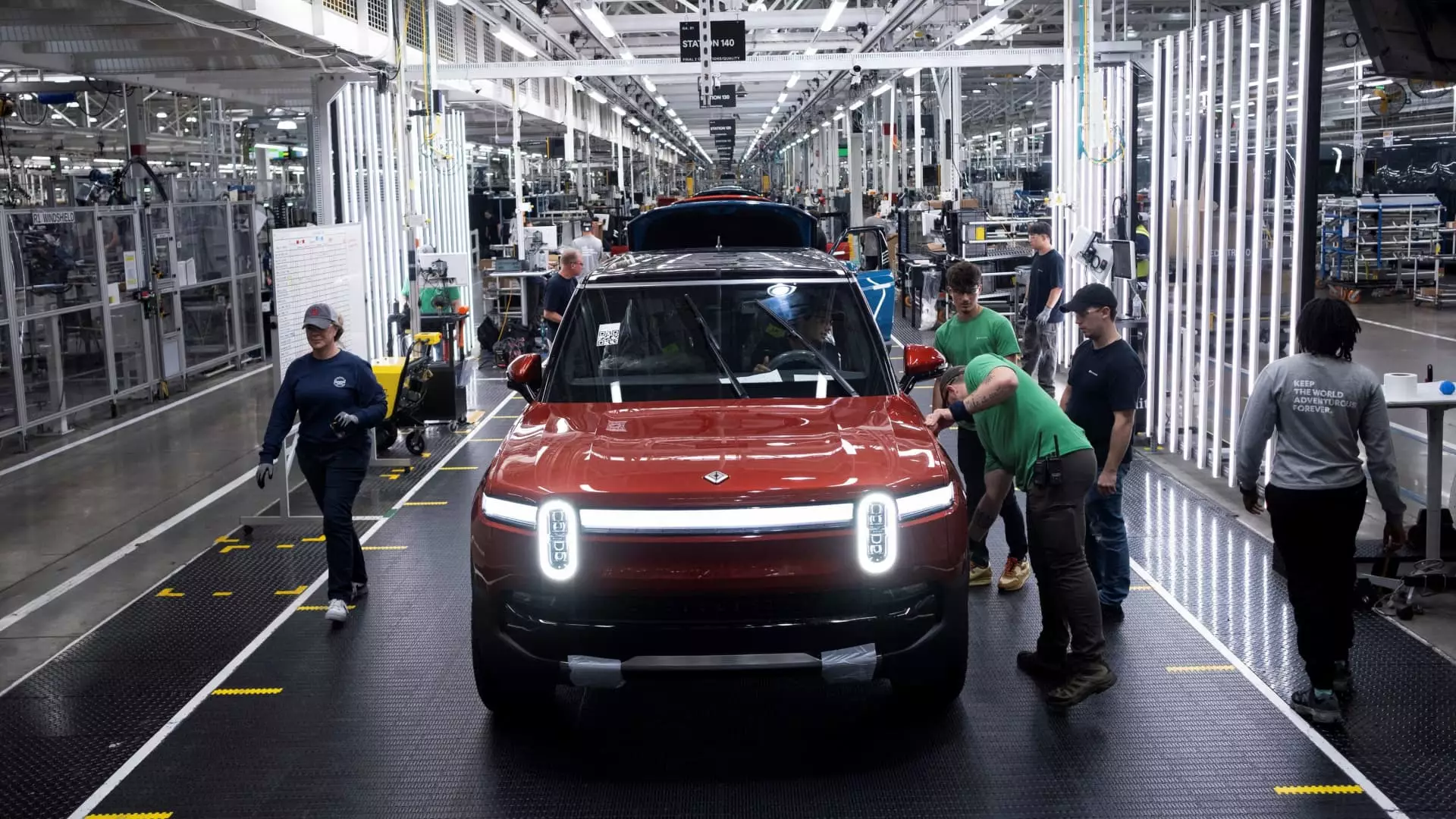In the volatile arena of electric vehicle (EV) manufacturing, Rivian Automotive has once again found itself under scrutiny following a disappointing quarterly performance. On Friday, shares plummeted by approximately 4% in early trading as Rivian reported an output significantly below analyst expectations for the third quarter. The company’s announcement that it was lowering its production forecast for 2024—from a previous estimate of 57,000 vehicles to a revised range of 47,000 to 49,000—sent shockwaves through investor circles.
The reduced target is attributed to production disruptions stemming from a shortage of a critical shared component, affecting both its R1 vehicles and the commercial van segment. This news not only signals potential cash flow issues but also raises concerns about the company’s ability to navigate the complex landscape of supply chain logistics in the automotive industry.
Rivian’s predicament highlights a significant issue that many manufacturers are currently grappling with: reliance on a multi-tiered supply chain that can be susceptible to disruptions. The spokesperson’s comments regarding the components associated with the company’s in-house motors reflect a more profound reality: supply chain challenges are not merely operational inconveniences but can have far-reaching implications on company outcomes. CEO RJ Scaringe’s remarks during a recent investor conference underscore the difficulties posed by supplier-related issues.
This situation points to the broader trend within the EV sector, where companies must constantly adapt to not only changes in demand but also fluctuations in the availability of critical parts. The challenges Rivian faces should prompt stakeholders to consider how resilient their supply chain strategies are and whether diversification could mitigate similar issues in the future.
Despite these setbacks, Rivian remains optimistic about its annual delivery outlook, projecting low single-digit growth compared to 2023. Their forecast estimates between 50,500 to 52,000 vehicles, indicating some degree of confidence in recovering from the current production issues. This forward-looking statement, however, must be approached with caution given the backdrop of recent performance. During the latest quarter, Rivian managed to produce 13,157 vehicles at its Normal, Illinois facility and delivered 10,018 vehicles, falling short of the anticipated 13,000 deliveries, according to analyst estimates compiled by FactSet.
As the company navigates through this turbulent period, maintaining a resilient growth strategy while addressing the challenges of cash flow and production will be crucial. Rivian’s stock has already suffered a significant decline, losing more than 50% of its value in 2024, largely attributed to slower-than-expected demand in the EV market and substantial cash expenditures.
The combination of production limitations and persisting supply chain challenges not only puts pressure on Rivian but also raises questions about the overall health of the EV market. Investors and analysts alike will be keenly assessing how Rivian adapts to these tribulations, as the company strives to carve out a sustainable niche within this competitive landscape.
Ultimately, Rivian’s ongoing battle to meet production goals amid component shortages serves as a cautionary tale for emerging EV manufacturers. Finding innovative solutions to balance production capability with consumer demand will be essential for Rivian’s future and the wider EV industry’s success.


Leave a Reply